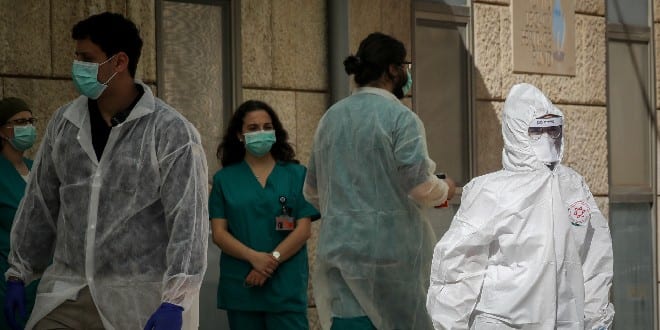Everyone’s got an opinion on what the post-corona world will look like. What will the economy look like? Which businesses will remain and how will they adapt? How will our work lives and social and communal lives change?
Most of us agree it will be a different world; we’re just fuzzy on the details.
There’s one detail, however, that I feel pretty confident about: We’re going to hate going to airports.
If you think flying is a schlepp now, wait until you see what our nervous airlines and transport authorities have in store for us.
Remember how annoying it was to adjust to the post-9/11 world of flying, with endless lines and security checks and the humiliation of having your skin cream confiscated because it was more than 3.4 ounces?
That was a picnic.
“The impact of COVID-19 on air travel will be even more far-reaching,” says airline consultant Shashank Nigam, CEO and founder of SimpliFlying, in a blog post.
He’s not kidding. In a report titled, “The Rise of Sanitized Travel—70 areas of the Passenger Journey Set to Change Forever,” Nigam’s website lays out a future for air travel that might as well be called “The Biggest Schlepp.”
I won’t list all 70 areas, but to give you an idea, here are seven highlights of the report from the excellent Morning Brew newsletter:
1. Online check-in: Besides choosing their seat or paying for checked bags, passengers might also need to upload a document to confirm the presence of COVID-19 antibodies in their blood before they fly.
2. Airport curbside: Passengers could be required to arrive at least four hours ahead of their flight and pass through a “disinfection tunnel” or thermal scanner to check their temperature before being allowed to enter the airport.
3. Check-in and bag drop: New, touchless kiosks would allow passengers to check in by scanning a barcode, or using gestures or voice commands. Agents would be behind plexiglass shields, and bags would be disinfected and then “sanitagged.”
4. Health check: Passengers would undergo a health screening, and potentially even have their blood tested. In April, Emirates became the first airline to conduct rapid on-site COVID-19 testing of passengers before boarding.
5. Security: Each carry-on bag and security bin would be disinfected when entering the X-ray machine, using fogging or UV-ray techniques, then “sanitagged.”
6. Boarding: Passengers would need to be present an hour before departure, maintain social distancing in the gate area and board only when they receive individual notifications on their smartphones, to prevent crowding in the jet bridge.
7. On the plane: The pre-flight safety video might include sanitation procedures, as passengers wipe down their seats and tray tables. In-flight magazines will be removed, seatback pockets emptied, and passengers will likely use their own devices to watch videos. An in-flight janitor might keep lavatories and other high-touch areas disinfected after passenger use.
Get the picture? The “friendly skies” of a COVID-19 world will be neither friendly nor pretty.
Of course, it’s not as if the authorities and companies have much choice. In these pandemic times, “safety first” has gone from a cliché parents utter at children’s playgrounds to the mantra of an era.
When you’re dealing with a lethal virus that can pop up anywhere and can break out anytime, and you’re trying to bring “safety first” to crowded public spaces like airports and airplanes, extreme levels of precautions become the norm.
Just as we paid a high “schlepping price” for the safety measures implemented after 9/11, we’ll be asked to pay an even higher price in the world of the coronavirus.
It’ll come down to one question: Is the hassle worth it?
Before booking flights, we will ask ourselves: Do I absolutely need to go on this trip? Can I do the business on Zoom? Can I visit family or friends fewer times? Can I take the car or train?
In other words: Can I do without this flight?
As someone who’s hooked on visiting Israel about twice a year, this is not happy news.
But “not happy news” is our new normal. We can look for all the silver linings and hidden blessings in the world—and yes, there are several—but in so many areas of our lives, this crisis is forcing us to confront grim realities.
In the first phase of the crisis, the fear of being infected has dominated. We’re now approaching a second phase, when we’ll fear losing some of the freedoms and conveniences we’ve long taken for granted.
Flying around the country and the globe is certainly one of those conveniences. At least for the foreseeable future, in this new safety-obsessed world we are entering, the option of staying put in our own towns may become more appealing.
Instead of schlepping through airports, we’ll do more schlepping on freeways.
Reprinted with author’s permission from Jewish News Syndicate




